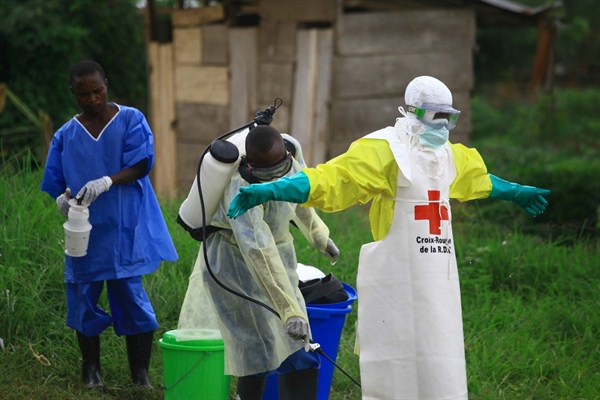In many ways, there is no country better prepared to respond to an Ebola outbreak than the Democratic Republic of Congo. Back in 1976, when Mobutu Sese Seko was in power and the country was known as Zaire, the disease was first discovered in the northern village of Yambuku, near the Ebola River, for which it is named. That initial outbreak resulted in 318 cases that killed 280 people—a fatality rate of nearly 90 percent.
Since then, Congolese and international health workers have responded to, and eradicated, eight other outbreaks, more than any other country. And they’ve often succeeded in keeping the death toll relatively low. Until a few weeks ago, it had been over a decade since an Ebola outbreak in Congo had killed more than 100 people.
There is mounting concern, however, that the latest outbreak, which was declared on Aug. 1 and is still going strong, will be unusually protracted and devastating, potentially claiming more lives than its predecessors. As of Tuesday, according to the World Health Organization, there had been 212 confirmed Ebola cases and 124 confirmed deaths, with 35 more deaths considered “probable.” Predicting the trajectory of outbreaks is difficult, but for now it’s safe to say that the end is still a ways off. Peter Salama, head of emergency response for the WHO, has warned that multiple factors appear to be coming together “to create a potential perfect storm.”

